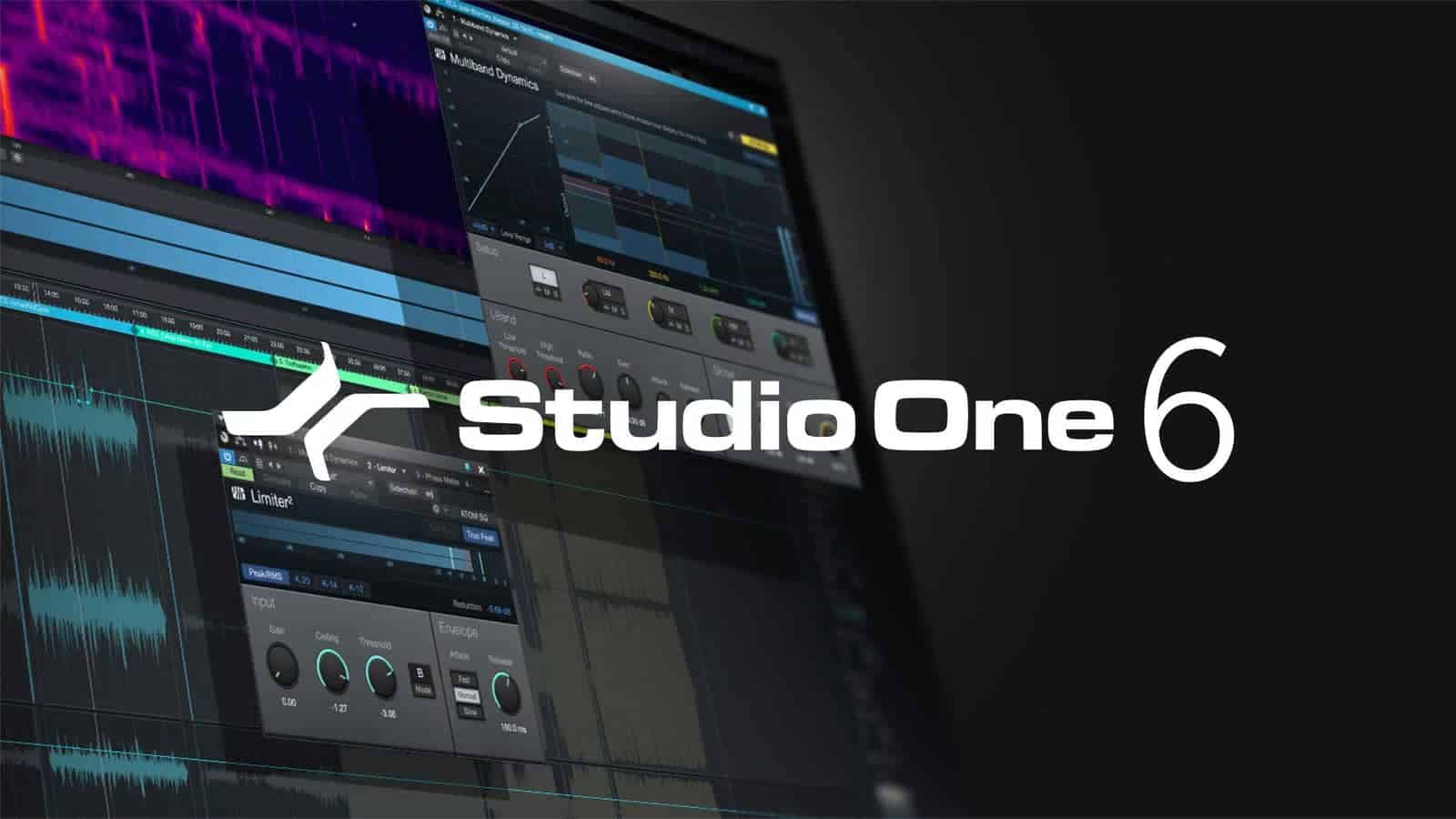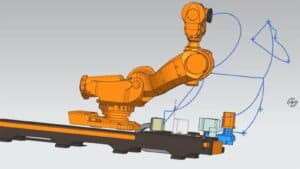As an audio production enthusiast, I understand the crucial role a reliable laptop plays in the creative process. Finding the best laptop for Studio One 6 isn't just about powerful specs; it's about ensuring a smooth and enjoyable experience while producing music, recording, mixing, and mastering. I've dedicated my time to researching and analyzing an extensive laptop spreadsheet of the latest releases, comparing specs, and scrutinizing both professional and user-generated reviews to streamline your search for the perfect machine.
Studio One 6, developed by PreSonus, is a digital audio workstation (DAW) that has gained popularity for its intuitive workflow, versatile features, and exceptional performance. When searching for the best laptop for Studio One 6, there are key elements to consider, such as processing power, RAM, storage, and connectivity options. Moreover, it's essential to accommodate the unique requirements and preferences of Studio One 6 users, like low-latency audio performance and compatibility with various audio interfaces.
To help you make an informed decision, I've narrowed down the top laptops that cater to different budgets and preferences while meeting the demands of Studio One 6. Whether you're a professional producer, a home studio enthusiast, or a musician on the go, my findings offer valuable insight to ensure you invest in the right machine for your audio production needs. With the ideal laptop in hand, you'll be ready to unleash your creativity and produce high-quality music with confidence and ease.
Processor Power
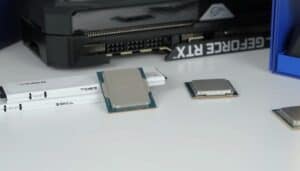
Whether you’re a musician looking to upgrade your hardware or a beginner that needs help deciding what processor is best for your studio, you’ve come to the right place.
The processor market has seen significant changes recently. Apple has released the M1, M1 Pro, M1 Max, and M2 System on Chip (SoC) modules; these offer exceptional single-core performance and battery life. AMD has also managed to take 20% of the CPU market with their 6th Generation Ryzen Processors. Intel's 13th-generation processors are not yet available for laptops, with 12th-generation being the latest. Both Apple and Intel's silicon chips have adopted a hybrid performance/efficiency core design based on big.LITTLE architecture. If you’re looking for good battery life in a laptop, then Ryzen models are your best bet.
But since the vast majority of Digital Audio Workstations (DAW) are designed for Windows, we’ll assume that you’re looking for a Windows laptop.
So, how much RAM and processor power do you need for recording and editing audio?
You don't need a state of the art processor to create music; most audio applications can be handled with a decent dual-core processor. However, single-core performance is still important, especially when using analog audio interfaces. So, if you’re using a digital interface (AD/DA converters), a quad-core processor is recommended for best performance. To use multiple projects at once without having your CPU as the bottleneck, an 8-core processor is recommended.
I personally use Cinebench and PassMark to compare processors across different price points. However, these benchmarks don't always paint the full picture, so I supplement them with other tests such as 3DMark or video encoding time (if it's relevant).
Below, I’ve ranked processors by performance, and provided my recommendations in three price brackets: minimum, recommended, and high-end.
| Minimum | Recommended | High-end |
|---|---|---|
| AMD Ryzen 3 3200U | Intel i3-10110U | Intel i5-10210U |
Finally, while some might argue that a desktop PC is better suited for music production than a laptop, I believe that laptops are the superior choice due to their portability and battery life — which can be essential for those long studio sessions away from an AC outlet.
Graphics Power
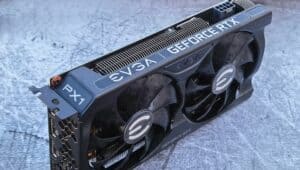
Graphic cards have come a long way in the past few years, but with so many different models to choose from, it can be difficult to pick the right one for your audio production needs.
The state of the graphics market
Nvidia continues to dominate the laptop GPU market. Nvidia recently released a few RTX 40 series cards, but these are not yet available on laptops (expected in 2023). Nvidia's latest notebook cards are in RTX 30 series (such as RTX 3070 Ti). Desktop GPUs are now a lot more power-hungry; thus, the gap between power-limited notebook graphics and desktop graphics cards has widened in the past few years. Nvidia has discontinued the Max-Q label for its RTX graphics cards. Now, an exact GPU wattage is determined by a laptop manufacturer (OEM). Unfortunately, that results in a wide variance in graphics performance even in laptops with the same GPU chipset.
Dedicated GPUs are not necessary for audio production
Fortunately, dedicated GPUs are not always necessary for audio production. It's only if you plan on working with video or 3D models that a dedicated GPU can help, and even then it might not be the best choice depending on what you are trying to accomplish. Most DAWs will not require more than an integrated graphics chip to run without issue.
How to know if a laptop has a powerful graphics chip
The best way to gauge a laptop's graphics performance is by looking up benchmark scores. Popular benchmarking software such as 3DMark can provide a good indication of a laptop's performance across different applications.
GPUs best suited for audio production
Nvidia's graphics chips are still the best for audio workstations, but AMD's latest offerings are making some inroads. If you're looking for a MacBook, the choice is simple – any MacBook will do. The GPUs that are best suited for audio production include:
- Iris Xe Graphics G7
- Quadro T500
- GeForce MX550
Table of recommended GPUs and laptop prices
| GPU Name | 3DMark Score | Estimated Laptop Price |
|---|---|---|
| Iris Xe Graphics G7 | 3500 | $500 – $800 |
| Quadro T500 | 4800 | $800 – $1200 |
| GeForce MX550 | 6000 | $1200 – $1500 |
Maximizing RAM
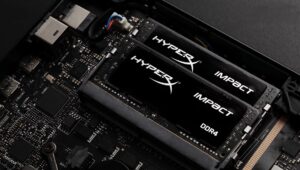
Studio One 6 is one of the most popular Digital Audio Workstations (DAW) out there, and is the go-to choice for audio and video production. When shopping for a laptop, it's important to consider the amount of RAM that your system needs in order to ensure smooth performance.
Most mid-range laptops come with 16 GB of RAM, while high-end systems often have 32 GB or more. The latest-gen Intel and AMD CPUs support DDR4 and DDR5 memory, though DDR5 is still quite expensive and needs some time to mature as a technology.
RAM is not a particularly important component when it comes to audio production, but if you're looking to use the DAW with multiple instances of synths, samplers, and effect plugins – then you'll need more than 16 GB. Ideally, 32 GB would be the best choice here, but that's pretty much the standard nowadays.
For DDR4 vs DDR5 – it doesn't really matter much in this case. I'd recommend going for DDR5 if you can afford it, but it's not worth spending extra money on.
If you're looking for a laptop with a lot of RAM (32 GB or more), then consider getting one with ECC support. It's not crucial for most audio workflows, but it could come in handy in some situations (for example, if you're working with high-quality recordings).
Other considerations when selecting the right laptop RAM for Studio One 6 include selecting between PCIe and M.2 storage, as well as checking out heatsink/fan combos to keep your laptop running cooler while running audio/video tasks.
Here's a look at my laptop recommendations for various price ranges when it comes to RAM:
- Minimum: 8 GB
- Recommended: 16 GB
- High-end: 32 GB+ (with ECC support)
Studio One 6 FAQ
Q: Which laptops are compatible with Studio One 6?
Studio One 6 is compatible with a wide range of laptops. However, it is essential to consider the system requirements to ensure optimal performance.
What are the system requirements for Studio One 6 on a laptop?
To run Studio One 6 smoothly on a laptop, you'll need a minimum of 8 GB of memory, Iris Xe Graphics G7 or better for graphics, and an AMD Ryzen 3 3200U or equivalent for the processor. For a medium-level experience, we recommend 16 GB of memory, a Quadro T500 or equivalent for graphics, and an i3-10110U or equivalent for the processor. For the maximum performance, go for 16 GB of memory, a GeForce MX550 or equivalent for graphics, and an i5-10210U or equivalent for the processor.
Can I run Studio One 6 on a budget laptop?
Yes, you can run Studio One 6 on a budget laptop. The minimum requirements mentioned earlier will allow you to run the software, but you might experience some limitations in performance. For a more optimized experience, consider going for a laptop with at least the medium-level specifications.
What laptop specs are recommended for Studio One 6?
For a recommended experience, we suggest a laptop with at least 16 GB of memory, a Quadro T500 or equivalent for graphics, and an i3-10110U or equivalent for the processor. This will provide you with a smooth and efficient workflow in Studio One 6.
Is an Intel Core i5 processor enough for Studio One 6 on a laptop?
An Intel Core i5 processor is sufficient for running Studio One 6 on a laptop. However, if you want to work with larger projects or handle more demanding tasks, an i7 or better processor would be a better choice.
Can I use Studio One 6 on a MacBook Pro?
Yes, Studio One 6 is compatible with MacBook Pro laptops. However, it is essential to check the system requirements and ensure that your MacBook Pro meets the minimum or recommended specifications for optimal performance.
How much RAM is needed to run Studio One 6 on a laptop?
Studio One 6 requires a minimum of 8 GB of RAM to run. However, for better performance and the ability to handle larger projects, we recommend having at least 16 GB of RAM. This will allow for smoother multitasking and the ability to load larger sample libraries without running into performance bottlenecks.
Are gaming laptops suitable for running Studio One 6?
Gaming laptops can be suitable for running Studio One 6, especially if they meet the minimum or recommended system requirements. However, keep in mind that gaming laptops often prioritize graphics performance over other aspects, so it's crucial to ensure that the laptop you choose also meets the processor and memory requirements.
What is the best laptop for recording and editing in Studio One 6?
The best laptop for recording and editing in Studio One 6 depends on your specific needs and budget. However, some recommended options include the ASUS ZenBook 13 UX325EA-EH71 at $730, the Dell G15 with a range of prices starting from $230, the Lenovo Legion 5 Pro starting from $600, the ASUS ROG Strix Scar at $2,310, the Lenovo Legion Pro 7i 16 at $3,390, and the Dell XPS 17 9720 at $5,600. These laptops offer a combination of powerful processors, sufficient memory, and suitable graphics for smooth recording and editing in Studio One 6.
Can I use a touchscreen laptop with Studio One 6?
Yes, you can use a touchscreen laptop with Studio One 6. While touch functionality is not specifically required for running the software, it can be a convenient feature for controlling the DAW interface and making precise adjustments. However, keep in mind that Studio One 6 is primarily optimized for mouse and keyboard input, so using touch may require some adaptation to your workflow.
Essential Specs
6 Best Laptops for Studio One 6
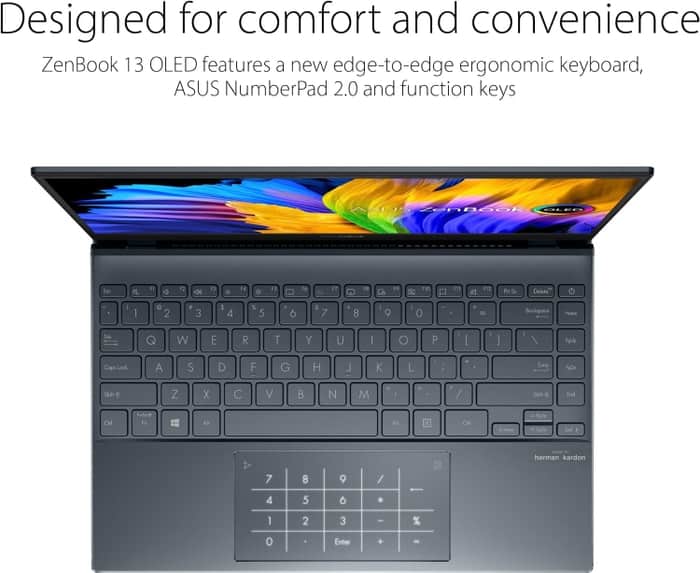
1.ASUS ZenBook 13 UX325EA-EH71
ASUS ZenBook 13 UX325EA-EH71: Powerful and portable, but with some minor drawbacks.- Sleek, lightweight frame
- Powerful overall and gaming performance
- Excellent battery life
- Very comfortable keyboard
- Weak speakers
- Display could be brighter
- No headphone jack
Summary
The ASUS ZenBook 13 UX325EA-EH71 is a sleek and lightweight laptop that offers great power and longevity with Intel's new 11th Gen chips. It has excellent overall and gaming performance, a comfortable keyboard, and impressive battery life. However, it does have weak speakers, a display that could be brighter, and lacks a headphone jack.
Reviews
Alternatives
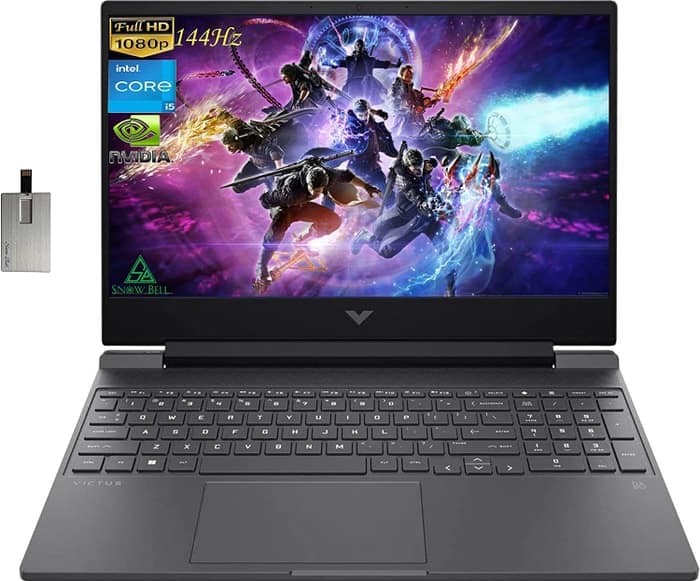
HP Victus
- Delivers smooth gameplay at 1080p.
- Fast SSD.
- No variable refresh rate to reduce screen tearing.
- Some performance loss on CPU under load.
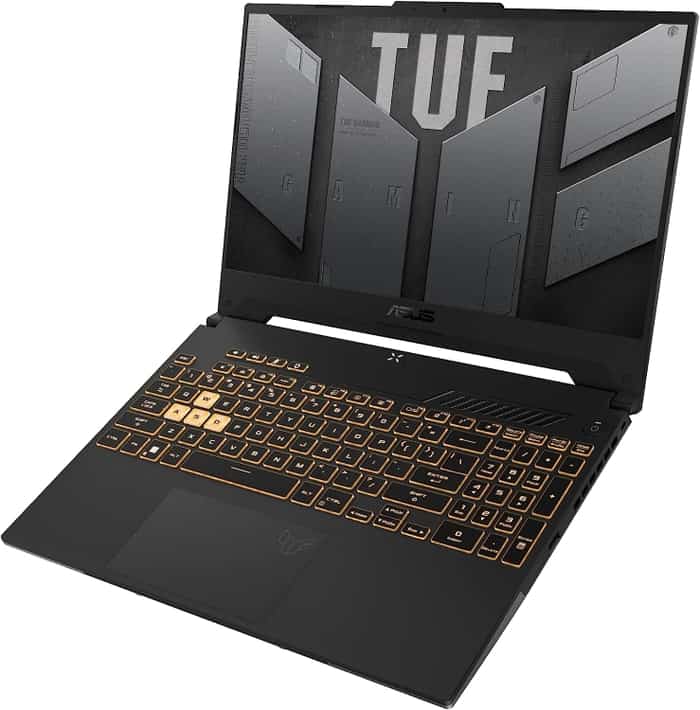
2.ASUS TUF F15 FX507VU-ES53
ASUS TUF F15 FX507VU-ES53: Budget Gaming Laptop with Some Drawbacks- Superb 1080p gaming performance
- Strong productivity capabilities
- Great price
- Poor webcam, touchpad, and speakers
- Some games appear washed out on the display
Summary
The ASUS TUF F15 FX507VU-ES53 is a budget gaming laptop that delivers excellent performance for 1080p gaming and productivity tasks. However, it falls short in terms of webcam, touchpad, speakers, and the display's color accuracy for certain games.
Alternatives

Lenovo Legion 5i Pro 16
- Stylish and sleek form factor
- Gorgeous display
- Webcam quality is subpar
- Lack of biometric options

3.ASUS ROG Strix G15
ASUS ROG Strix G15: Unleash the Power of the RTX 3070.- High-performance CPU and GPU
- Good workmanship and design
- High-refresh rate display
- Stable construction and user-friendly maintenance
- Skimpy connectivity
- Potential coil whine in certain situations
Summary
The ASUS ROG Strix G15 is a powerhouse gaming laptop with its RTX 3070 GPU and Ryzen 5000 CPU, delivering exceptional performance for gaming. It boasts a high refresh rate display and a sleek design, along with good build quality and user-friendly maintenance. However, its connectivity options are limited and it may have coil whine in certain situations.
Reviews
Alternatives
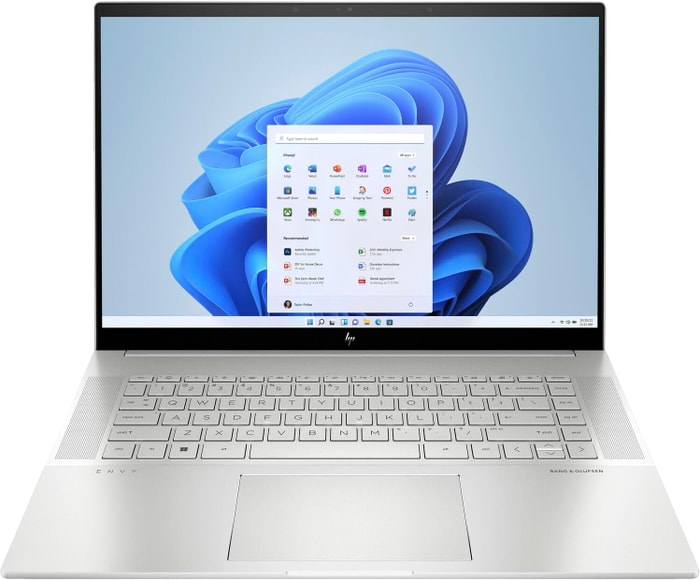 $1,800
$1,800HP Envy 16
- Plenty of CPU and GPU power
- New 120Hz screen refresh rate
- Merely adequate base screen
- Optional OLED has fewer pixels than before
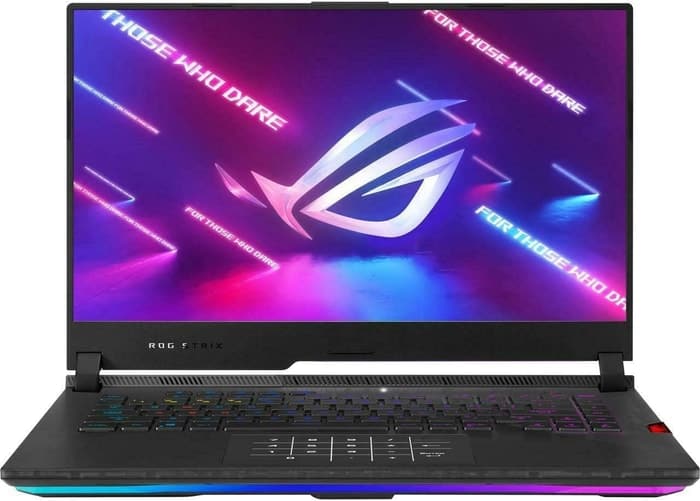
4.ASUS ROG Strix Scar
ASUS ROG Strix Scar 15 excels in performance and gaming but suffers from heating issues and ergonomic quirks.- Sturdy construction
- Fast Wi-Fi 6E
- Excellent response times and no PWM
- Wide color gamut coverage with Dolby Vision support
- Limited display angle
- No biometric login
- Heavy SSD throttling during continuous reads
- High heat and noise emissions under load
Summary
The ASUS ROG Strix Scar 15 impresses with its powerful performance, compact design, and valuable features. It outperforms its larger counterpart, the Scar 17, and offers a potent alternative to last year's model. However, it does struggle with heating issues, less efficient Intel Alder Lake platform, and some ergonomic quirks.
Reviews
Alternatives
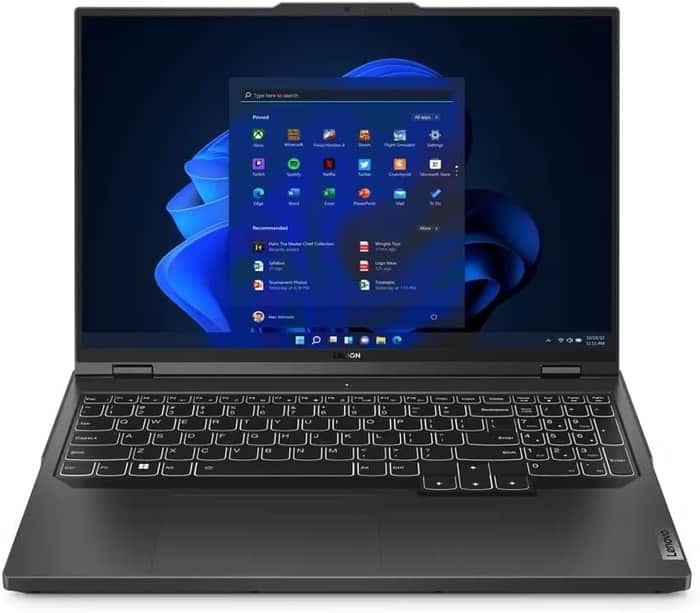
Lenovo Legion Pro 5
- Good build quality and design
- Good screen and IO
- No Thunderbolt or biometrics
- Hotspots under sustained loads

5.Lenovo Legion Pro 7i 16
Lenovo Legion Pro 7i: The Sleek Gaming Powerhouse Worth the Investment.- Strong overall performance
- Big, bright, and fast display
- Per-key RGB lighting
- Some flex to keyboard deck
- Poor battery life
Alternatives

HP Omen 17
- QHD display with 165 Hz refresh rate
- Expandable working memory
- Slightly below-average performance for a RTX 4080
- High noise level
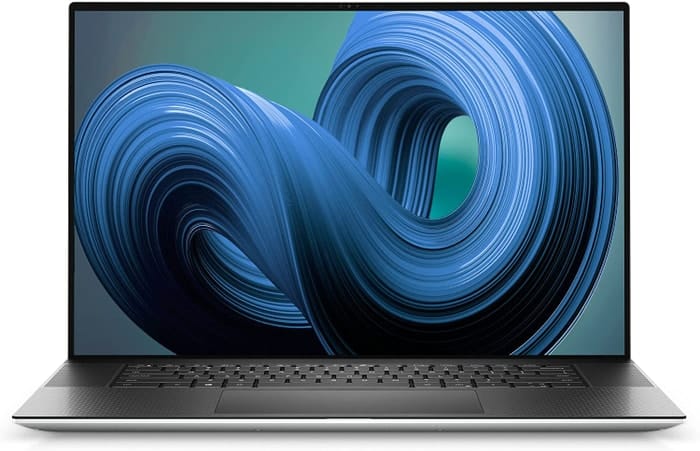
6.Dell XPS 17 9720
Dell XPS 17 9720: A high-performance laptop with an excellent 4K display, but graphics performance and cooling could be improved.- Excellent 4K display with AdobeRGB
- High-quality case
- Thunderbolt 4 PCIe 4.0
- Very high system performance
- Lower graphics performance than the predecessor
- Performance not completely stable under combined load
- Not Wi-Fi 6E compatible
- 720p webcam
Summary
The Dell XPS 17 9720 offers an excellent 4K display with AdobeRGB and a high-quality case. It also provides high system performance, Thunderbolt 4, and PCIe 4.0. However, the graphics performance is lower than its predecessor and the cooling could be better.
Reviews
Alternatives
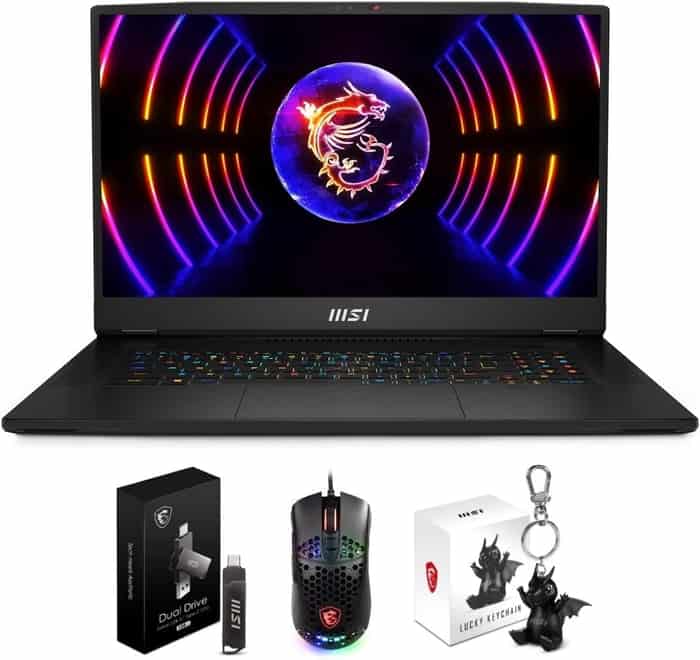
MSI Titan GT77HX 13VI-042US
- Excellent mechanical keyboard
- Class-leading Mini-LED display
- Uninspired design
- Short battery life
Table of the Best Laptops for Studio One 6
| Laptop | Price (approx) |
| ASUS ZenBook 13 UX325EA-EH71 | $730 |
| ASUS TUF F15 FX507VU-ES53 | $1,100 |
| ASUS ROG Strix G15 | $1,750 |
| ASUS ROG Strix Scar | $2,050 |
| Lenovo Legion Pro 7i 16 | $3,390 |
| Dell XPS 17 9720 | $5,600 |

